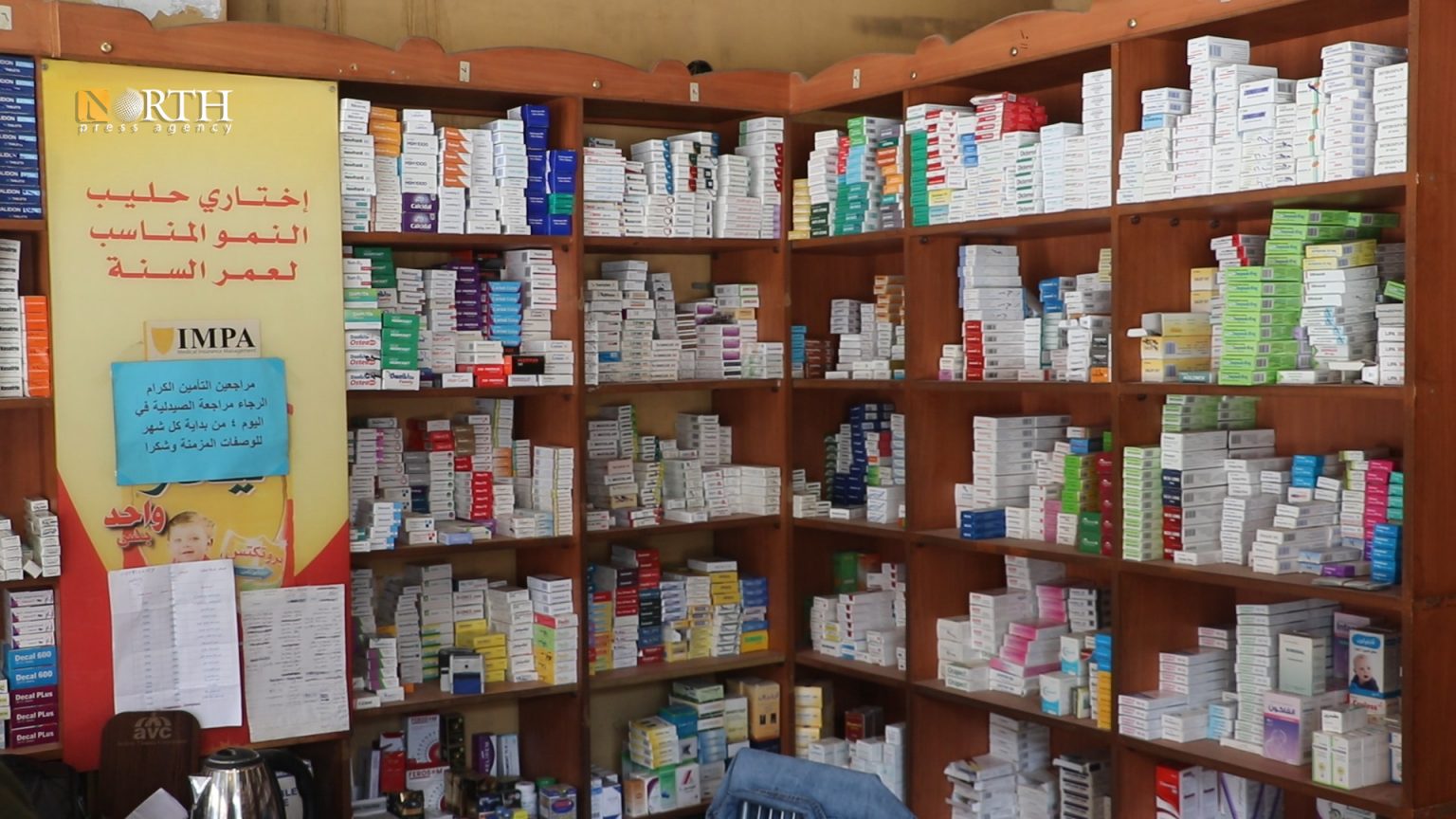Pharmacies in Damascus and the areas controlled by the Assad regime have experienced significant shortages of essential pharmaceutical items, particularly those used for chronic diseases such as heart conditions, diabetes, and high blood pressure. These shortages have coincided with an unprecedented surge in prices for nutritional supplements, antibiotics, dermatological products, and cosmetic preparations, with some items seeing price increases of up to 100%. This price surge is a direct result of the recent depreciation of the Syrian pound against the U.S. dollar, with the exchange rate surpassing 10,000 Syrian pounds.
Mustafa Abu Hayyan, a pharmacist from Damascus, informed Orient Net that many pharmaceutical companies have adjusted their prices to align with the official dollar exchange rate, which was recently set at 9,200 Syrian pounds. However, this adjustment has led to a scarcity of certain medication groups. Abu Hayyan highlighted that medications used to regulate blood pressure and prevent angina, such as “Molsicor” and “Molsidomine,” have been unavailable for four months. The only alternative available is the foreign variety, which is priced considerably higher due to its dependency on the dollar exchange rate.
Additionally, infant formula has been absent from pharmacies for three months, and its distribution has ceased. On the black market, its current price has soared to 55,000 Syrian pounds, significantly exceeding the previous price of 18,800 Syrian pounds set by the syndicate.
Rami al-Ali, a pharmacist from Homs, disclosed that local drug items have experienced substantial price hikes ranging from 30% to 50% over the past month. Numerous items have also become unavailable, causing significant inconvenience for customers, particularly those suffering from chronic illnesses who can no longer access their necessary treatments. Ali revealed that warehouse owners and drug distributors have refused to supply certain items, claiming unavailability. However, the true reason appears to be a deliberate intention to inflate medicine prices, subsequently selling them on the black market or within their own pharmacies. This predatory behaviour further burdens patients, especially those with chronic diseases, forcing them to rely on these unscrupulous practices.
Assad Government Admits
Hassan Dirawan, the head of the Damascus Pharmacists Syndicate, acknowledged the crisis and stated that 13 pharmaceutical groups permanently ceased production due to the depletion of imported raw materials. Dirawan reassured that ongoing communication with the Ministry of Health is in place to prevent any interruption of vital medication supplies.
Given the deteriorating economic conditions and the inability of a significant portion of the population to afford medications, many citizens have resorted to herbal medicine or alternative treatments, commonly known as “Arab medicine.” The exorbitant prices of pharmaceuticals have rendered them unaffordable, exacerbating the healthcare crisis faced by the Syrian population.
This article was translated and edited by The Syrian Observer. The Syrian Observer has not verified the content of this story. Responsibility for the information and views set out in this article lies entirely with the author.


